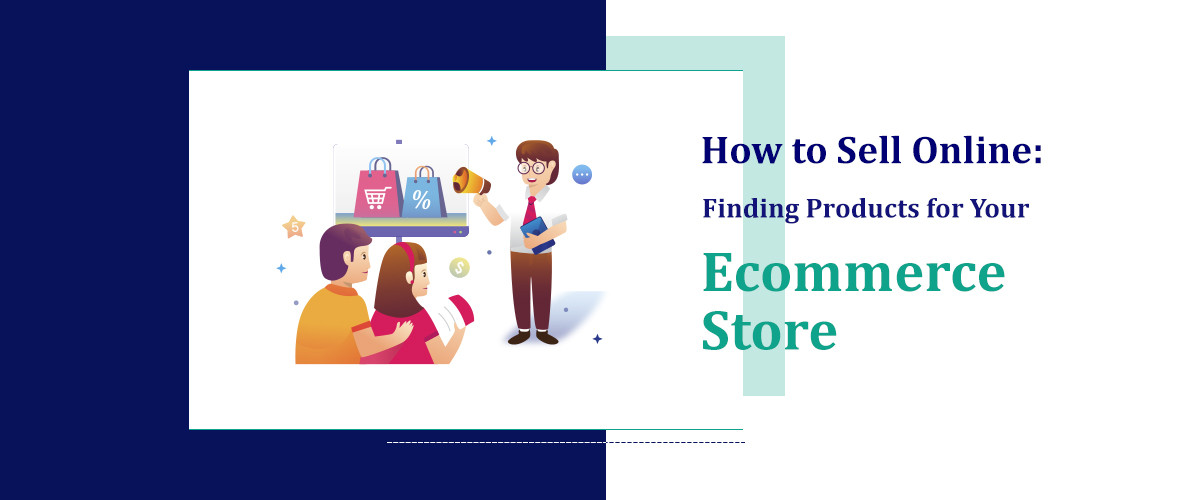What we'll cover
Starting a business selling products online can be a lucrative, flexible, and lifestyle-friendly way of making a living, but figuring out what to sell can be a big stumbling block for many.
Competition is so fierce in this digital age, and it can feel like every idea you come up with is already being done - and that's largely true, but that doesn't mean you can't take some of the pie for yourself.
New products are successfully launched every day, and even if you're not the first to turn up at a particular opportunity, you may still have what it takes to make the greatest success out of it. Successfully managing an eCommerce venture takes many skills, from efficiently managing inventory, to running impactful marketing campaigns, providing quality customer service, and more. Still, without a winning product, it doesn't matter how well you do the rest.
To help you to find the right products for your eCommerce venture, here are some tried and tested ways of sourcing great products to sell, and building a memorable brand as you go.
Follow your passion
While choosing products to sell based on your own personal passions isn't any guarantee of success, it can help to fuel your venture with some first-hand knowledge and passionate interest.
Building an eCommerce business takes a great deal of hard work, perseverance, and patience, and dealing with something that gives you pleasure can help keep you motivated. The more personally invested and interested you are in what you are trying to sell, the easier it will be to overcome any hurdles and work that bit harder.
Focusing on something you are personally passionate about can also help in terms of marketing. Writing blogs, engaging in relevant online content, and more in an authentic, enthusiastic way can help drive more customers to your store.Moreover, with the help of modern DXP architecture, you can deliver dynamic experiences that resonate with your audience and keep them coming back for more.
Capitalize on your strengths
Similarly to focusing on your passions, capitalizing on your strengths, in general, can be a great place to start. What skills or industry knowledge might you have cultivated from prior job experiences? Does your family have business expertise in a particular area that you could expand upon? Whatever it is, considering any existing knowledge, expertise, and skill sets can point you in the right direction of promising opportunities.
Solve a problem
Ultimately, whether it be a need or a want, all products solve something for the consumer. Otherwise known as 'pain points,' many businesses focus on solving a customer's pain point as a means of effectively making sales. Some products solve literal pain points, like headaches, for example, while millions of other products seek to solve the more abstract pain point variety. For example, many product lines seek to offer up an improved solution for an everyday issue that current products aren't satisfactorily addressing, like a new and improved stain remover that cleans up spills more effectively than any other product on the market.
If you pay close enough attention to the everyday annoyances that come and go, you may even stumble upon a great invention idea.
Target niche hobbyists
Selling niche products to enthusiastic hobbyists is big business, as many people who work hard are willing to spend some of their hard-earned cash on things that make their hobbies more enjoyable. Ever met a keen golfer uninterested in new clubs that promise to improve their game?
Of course, you could use your own hobby as a foundation, which is in keeping with following your own passions as we've already discussed. Targeting niche hobbyists doesn't necessarily need to be related to your own hobbies, although some interest or knowledge in the topic will certainly pay off.
Either way, identifying opportunities in niche/hobby markets can be big business - figuring out any pain points common to particular hobby niches can be a great way to uncover ideas. Head to hobby blogs and see what the enthusiasts are regularly complaining in agreement about and see how you can solve the problem!
Move fast on significant trends
No one has a crystal ball - but if you stay one step ahead by paying close attention to any significant trends that are taking off, you can get in on the act so fast that it can seem like you do.
Huge eCommerce wins are available to anyone who can successfully position themselves as a leader in a newly emerging market, but it takes great tenacity, fast action, and a willingness to take some chances. That said, any new trend worth its salt will provide plenty of momentum for you given the nature of viral trends - so long as you can tap into it effectively and ride the wave.
There are a variety of ways to identify emerging (or repeating) trends, including:
-
Analyzing Google Trends
-
Keeping an eye on what's getting the most buzz on Reddit, Twitter, Facebook, etc.
-
Trendhunter - visit a website dedicated to trend spotting to keep your finger on the pulse
Brainstorm with keyword research
Organic search engine traffic is a vital component of online marketing, so it makes sense to see what keywords are common in searches and consider how these could be paired with product opportunities.
This approach isn't for the inexperienced, as it can take a decent level of keyword research understanding to ensure your time is well-spent. While syncing keywords with product demand can be a fantastic way to capitalize on organic traffic, relying on it too heavily can leave you at the mercy of changing algorithms, so consider all angles carefully before making your move.
Final thoughts
Whatever direction you take, do your research thoroughly, be flexible in your approach, find ways to meaningfully test the market before pouring too much time and capital into any idea, and always be on the lookout for new and emerging trends.
Paying close attention to what consumers are saying is a vital component of identifying opportunities and staying relevant in what you are offering. What are their pain points? What problems need solving? In what way can current products be improved upon? One of the most valuable ways that businesses can utilize the internet is to keep their finger firmly on the pulse regarding consumer wants, needs, and opinions.



.jpg)
